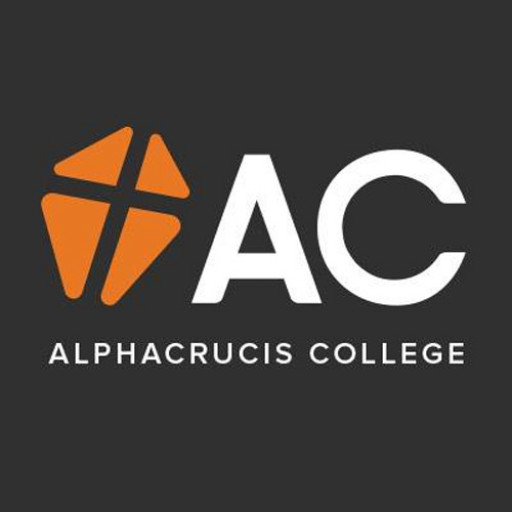Photos of university / #unikentlive
The BA in Religious Studies at the University of Kent offers students a comprehensive exploration of the diverse religious beliefs, practices, and traditions that have shaped human history and continue to influence contemporary society. This programme provides a multidisciplinary approach, integrating insights from history, philosophy, anthropology, and cultural studies to deepen understanding of the complex role religion plays in individual identities and social structures worldwide. Students will examine major world religions such as Christianity, Islam, Hinduism, Buddhism, and Judaism, alongside lesser-known spiritual traditions, enabling a broad and nuanced perspective on religious diversity. The curriculum encourages critical thinking and analytical skills through the study of religious texts, rituals, ethical systems, and historical developments, fostering an appreciation for the symbolic and social functions of religion. Throughout the course, students will engage with contemporary issues such as religious pluralism, secularism, conflict, and interfaith dialogue, preparing them for careers in education, research, cultural heritage, policy analysis, and related fields. The programme offers optional modules that allow students to focus on specific regions or themes, providing a tailored educational experience aligned with their interests and career aspirations. With access to excellent resources, expert lecturers, and a vibrant academic community, students can participate in a range of seminars, workshops, and field visits that enhance practical understanding and experiential learning. The university's strong emphasis on research-led teaching ensures that students are equipped with up-to-date knowledge and analytical tools to critique and appreciate the multifaceted nature of religion in the modern world. Graduates of this programme will develop a deep, critical awareness of religious phenomena and their impact on global society, making them well-prepared for further academic study or entry into diverse professional fields related to religion, culture, and social change.
Detailed Course Facts
Application deadline January 15 Tuition fee- GBP 9000 Year (EEA)
- GBP 12450 Year (Non-EEA)
Part-time:EU:£4500;Non-EU:£6240
Start date September 2015 28 September 2015 Credits (ECTS) 180 ECTSCredits Total Kent credits: 360
Duration full-time 36 months Languages Take an IELTS test
- English
Course Content
The course structure below gives a flavour of the modules that will be available to you and provides details of the content of this programme. This listing is based on the current curriculum and may change year to year in response to new curriculum developments and innovation. Most programmes will require you to study a combination of compulsory and optional modules, you may also have the option to take wild modules from other programmes offered by the University in order that you may customise your programme and explore other subject areas of interest to you or that may further enhance your employability.
Stage 1
Possible modules may include:
TH341 - What is Religion?
TH342 - Religion in the Contemporary World
TH345 - From: Eden To The End of The World: An Introduction to The Bible
TH346 - Introduction to Asian Traditions
TH331 - Introduction to Hinduism & Buddhism
TH334 - Religion and Sex
TH340 - Gods of the Desert: Judaism and Islam
You have the opportunity to select wild modules in this stage
Stage 2
Possible modules may include:
PL601 - Philosophy of Religion
TH598 - Issues in Religious Studies
TH601 - Hindu Religious Thought
TH606 - William James: Philosopher, Psychologist and Scholar of Religion
TH570 - I:Religion and Film
TH571 - I:Death of God ? :Christianity and the Modern World
TH608 - Sociology of Religion
TH611 - The Sacred in Contemporary Society
TH594 - Christianity and Ethics
TH618 - Continental Philosophy of Religion
TH620 - Anthropology of Religion
TH624 - Indian Philosophy of Religion
TH626 - Gods and Government from the Roman Empire to Tony Blair
TH628 - Gods and Government from the Roman Empire to Tony Blair
TH630 - Comparative Literature and Religion of Biblical Worlds
TH632 - Comparative Literature and Religion of Biblical Worlds
TH634 - Mahåyåna Buddhism: The Foundations
You have the opportunity to select wild modules in this stage
Year abroad
You have the opportunity to study at a partner university for a term or a whole year, to experience an international environment. Religious Studies students currently have a wide range of opportunities in Canada, the USA, China, Hong Kong; with more partnerships hoped for in the near future. You may also wish to pursue a European exchange through the Erasmus Exchange scheme.
Stage 3
Possible modules may include:
TH635 - Mahåyåna Buddhism: The Foundations
TH633 - Comparative Literature and Religion of Biblical Worlds
TH631 - Comparative Literature and Religion of Biblical Worlds
TH629 - Gods and Government from the Roman Empire to Tony Blair
TH627 - Gods and Government from the Roman Empire to Tony Blair
TH625 - Indian Philosophy of Religion
TH621 - Anthropology of Religion
TH619 - Religious Studies and Philosophy in the Classroom
PL575 - Philosophy of Religion
TH612 - The Sacred in Contemporary Society
TH617 - Continental Philosophy of Religion
TH574 - H:Religion and Film
TH575 - H:Death of God ? :Christianity and the Modern World
TH577 - Christianity and Ethics
TH607 - William James: Philosopher, Psychologist and Scholar of Religion
TH515 - Theology and Religious Studies Dissertation
TH555 - Hindu Religious Thought
TH558 - Sociology of Religion
English Language Requirements
IELTS band : 6.5
To study at this university, you have to speak English. We advice you to
take an IELTS test.Requirements
The University will consider applications from students offering a wide range of qualifications, typical requirements are listed below, students offering alternative qualifications should contact the Admissions Office for further advice. It is not possible to offer places to all students who meet this typical offer/minimum requirement.
- A level: BBB
- Access to HE Diploma; The University of Kent will not necessarily make conditional offers to all access candidates but will continue to assess them on an individual basis. If an offer is made candidates will be required to obtain/pass the overall Access to Higher Education Diploma and may also be required to obtain a proportion of the total level 3 credits and/or credits in particular subjects at merit grade or above.
- BTEC Level 3 Extended Diploma (formerly BTEC National Diploma): The university will consider applicants holding BTEC National Diploma and Extended National Diploma Qualifications (QCF; NQF;OCR) on a case by case basis please contact us via the enquiries tab for further advice on your individual circumstances.
- International Baccalaureate: 34 points overall or 15 points at HL
International students
The University receives applications from over 140 different nationalities and consequently will consider applications from prospective students offering a wide range of international qualifications. Our International Development Office will be happy to advise prospective students on entry requirements.
Work Experience
No work experience is required.
Related Scholarships*
- Academic Excellence Scholarship
"The Academic Excellence Scholarship can provide up to a 50 % reduction in tuition per semester. These scholarships will be renewed if the student maintains superior academic performance during each semester of their 3-year Bachelor programme. The scholarship will be directly applied to the student’s tuition fees."
- Access Bursary
Bursary for UK students all subjects where the variable tuition fee rate is payable.
- Alumni Bursary
Alumni Bursary for UK Undergraduate students
* The scholarships shown on this page are suggestions first and foremost. They could be offered by other organisations than University of Kent.
Funding
The Religious Studies program at the University of Kent offers students a comprehensive exploration of religious beliefs, practices, and historical developments across a diverse range of traditions. Designed to provide a balanced understanding of both classical and contemporary issues, the program encourages critical thinking and analytical skills, enabling students to examine the role of religion in society, politics, ethics, and culture. Students have the opportunity to engage with a variety of modules that cover topics such as the history of religions, philosophical debates, religious texts, and contemporary religious movements. The program typically combines lectures, seminars, and independent study, fostering an environment conducive to academic inquiry and debate. The curriculum aims to develop a nuanced understanding of religious diversity and to explore questions about faith, spirituality, and secularism. Options may also include practical aspects of religious practice, as well as the study of religious art, architecture, and influence in global contexts. The program is suitable for students interested in careers in education, academia, international relations, intercultural dialogue, or community work related to religious issues. Students benefit from the university’s research-led teaching, with access to renowned scholars in the field. The university’s excellent library facilities and connections with religious organizations and institutions further enhance the learning experience. The program typically culminates in a dissertation that allows students to investigate a specific area of interest in depth, demonstrating their ability to conduct independent research. Graduates of the program often pursue postgraduate study or careers where an understanding of religious dynamics and cultural awareness are required. The duration of the program is usually three years for a full-time undergraduate degree, with part-time options available. The program's structure, content, and opportunities are designed to prepare students both academically and professionally for a variety of future paths.








